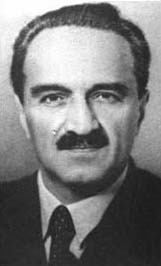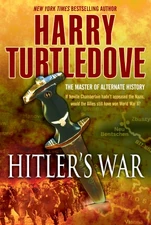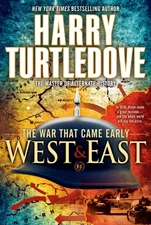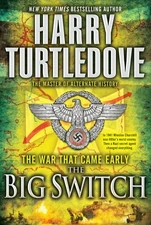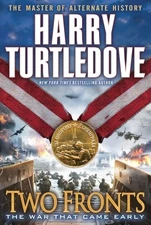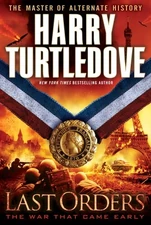| ||||||||||||||||||||||||||||||||||||||||||||||||
Anastas Hovhannesi Mikoyan (25 November 1895 - 21 October 1978) was an Armenian Old Bolshevik and Soviet statesman during the respective reigns of Vladimir Lenin, Joseph Stalin, Nikita Khrushchev, and Leonid Brezhnev.
Anastas Mikoyan joined the Bolshevik Party and fought in Baku during the 1910s against anti-Bolshevik figures. He supported Stalin after Lenin's death created a power vacuum. During Stalin's reign, he was awarded with several high governmental posts including Minister of Trade. After Stalin's death, he backed Nikita Khrushchev and his de-Stalinization policy. He made several key trips to communist Cuba and the United States, acquiring an important stature in the international scene. In 1964, Khrushchev was forced to step down in a coup that brought Brezhnev to power. Mikoyan's influence was retained under Brezhnev as he was appointed Chairman of the Presidium of the Supreme Soviet from 1964 until his retirement in 1965.
Literary Comment
Mikoyan's ability to survive was summed up by an official thusly: "The rascal was able to walk through Red Square on a rainy day without an umbrella [and] without getting wet. He could dodge the raindrops."[1] Harry Turtledove has referenced this metaphor about Mikoyan in more than one of his works, including The Gladiator [2] and The Man With the Iron Heart[3]. In Joe Steele, Mikoyan himself describes this skill to Charlie Sullivan[4].
Anastas Mikoyan in The War That Came Early
Sergei Yaroslavsky was of the opinion that people from the Caucasus had a special advantage in entering Soviet politics, because they could turn phrases in such a clever, obtuse way, that no one could figure out what they were talking about until it was too late. Anastas Mikoyan was one of his textbook examples of this.[5]
Anastas Mikoyan in Joe Steele
Stas Mikoian was the American born son of Armenian immigrants. He had a brother who was an aircraft designer. He was a close ally of Joe Steele (himself the son of immigrants), and was instrumental in getting Steele elected President of the United States in 1932.
Mikoian had met Steele in Fresno, and stuck with Steele after Steele was elected to the House of Representatives.[6] He actively campaigned for Steele at the Democratic National Convention in Chicago in July, 1932.[7] When Steele's primary rival, New York Governor Franklin D. Roosevelt, died in a fire[8] Steele won the nomination.[9] (For his part, Mikoian went white when the fire was announced to the Convention.[10]) Steele went on to win the election in a landslide.[11]
Mikoian quickly gained a reputation as being Steele's most approachable aid. When reporter Charlie Sullivan, for whom Steele had shown a great deal of appreciation, approached Mikoian[12] about Virginia Senator Carter Glass' abrupt shift from opponent to supporter of Steele's plan to nationalize the country's banks,[13] Mikoian described how the administration had reached out to young-and-coming Government Bureau of Investigation chief J. Edgar Hoover to investigate opponents of the nationalization scheme. Hoover "found out" that Senator Glass, the leader of the opposition, had a secret love child with his family's Negro maid in his youth.[14]
Mikoian remained indispensable to Steele for his entire twenty-year presidency. He attended Steele's first meeting with Winston Churchill in 1941, the Basra Conference, and the Wakamatsu Conference in 1946. In addition to being approachable, Mikoian acted as a moderating force for Steele's harsher impulses. While he was devoted to Steele, he could see instances wherein caution was appropriate. After Charlie Sullivan became a speechwriter for Steele, Mikoian had one more ally to help rein Steele in.[15]
When Steele died on March 5, 1953, his successor, John Nance Garner, got resignation letters from the entire Cabinet as a matter of form, and Steele's former aides including Lazar Kagan and Vince Scriabin as well as Mikoian and speechwriter Sullivan. However, once they'd signed the form letters, Garner announced that he accepted Kagan, Mikoian and Scriabin's resignations effective immediately. Sullivan he let stay on. While both Kagan and Scriabin were indignant, Mikoian had the presence of mind to ask why Garner was doing this. Garner admitted that he was angered by the shabby treatment he'd received from the three. He offered them ambassadorships to soften the blow, with Mikoian going to Afghanistan, Kagan to Paraguay, and Scriabin to Outer Mongolia. He kept Charlie Sullivan around because Sullivan had in fact talked to him and even drank with him over the past 20 years.[16]
Mikoian went to Afghanistan without further complaint.[17]
Literary Comment
In the short story, Stas Mikoian is important to Steele's victory in 1932, but vanishes after the first pages.
References
- ↑ Sebag-Montefiore, Simon (2005). Stalin: The Court of the Red Tsar. New York: Vintage Books
- ↑ The Gladiator, pg. 59.
- ↑ The Man With the Iron Heart, p. 199.
- ↑ Joe Steele, pg 307, HC.
- ↑ Hitler's War, p. 411, HC.
- ↑ Joe Steele, pg. 9.
- ↑ Ibid.
- ↑ Ibid. pg. 18-21.
- ↑ Ibid., pgs. 22-27.
- ↑ Ibid. pg. 22
- ↑ Ibid. pg. 38.
- ↑ Ibid., pg. 54.
- ↑ Ibid., pgs. 49-51.
- ↑ Ibid., pg. 58-59.
- ↑ Ibid. pg. 307.
- ↑ Ibid., pgs. 416-417.
- ↑ Ibid., pg. 423.
| Political offices (OTL) | ||
|---|---|---|
| Preceded by Leonid Brezhnev |
Chairman of the Presidium of the Supreme Soviet (Head of State) 1964–1965 |
Succeeded by Nikolai Podgorny |
| |||||||||||||||||||
| ||||||||||||||||||||||
